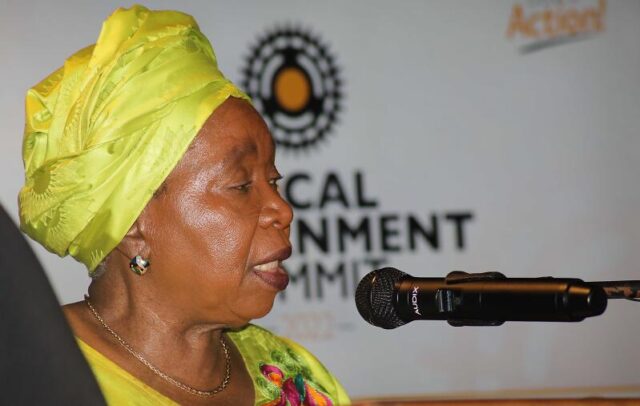Cogta Minister Dr Nkosazana Dlamini Zuma says the measures they will put in place will deter corruption from those planning to steal funds to minimise the impact of loadshedding.
MINISTER of Cooperative Governance and Traditional Affairs Dr Nkosazana Dlamini Zuma says government has tightened measures to prevent the looting of funds during emergency procurement as directed by the national State of Disaster to minimise the impact of rolling blackouts.
Dlamini Zuma said that other than bringing in the Auditor-General to do real time audit on the transactions, the heads of departments and entities will go to Parliament every month to give reasons for what they procured using emergency procurement.
It is where lawmakers will grill heads of departments on how they used funds, she said on Friday.
Using the parliamentary committees to conduct oversight on departments using emergency procurement will be one of the effective mechanisms to trace every cent that is used, said Dlamini Zuma.
However, if they feel they need to bring in more players they can revive the Fusion Centre that was used during Covid-19 emergency procurement, which investigated a number of corruption cases when funds were looted.
The Fusion Centre comprises the National Prosecuting Authority, the Hawks, the police, the Special Investigating Unit and other law enforcement agencies.
She said the use of funds during emergency procurement will be strictly monitored to prevent corruption and looting like what happened in the past.
“What is even more important is that every month the accounting officer goes to Parliament to their portfolio committee and explain what they have procured, for what and when. This is how we are trying to stop what happened earlier (during Covid-19).
‘ I think going to Parliament every month is going to be very helpful because people will then know that they have to account to the nation because if you are going to parliament you are accounting to the nation. Any questions will be asked, it won’t be just a report. But you will be there to answer questions. We are hoping that this will assist us,” said Dlamini Zuma.
She said drawing lessons from the pandemic, the Fusion Centre comprising law enforcement agencies was established to crack down on corruption and looting of emergency funds.
Meanwhile, Health Minister Joe Phaahla said the number of hospitals and clinics exempted from load shedding would be increased, following discussions with Eskom.
He said they had identified 213 key healthcare facilities that needed to be exempted from power cuts.
By October last year Eskom had exempted 76 hospitals. It will finalise the exemption of the remaining 137 after installing separate electricity lines for them.
The government has set aside R300 million to put separate lines for these hospitals that will cut them off from the other lines used by businesses and communities.
Current Affairs







